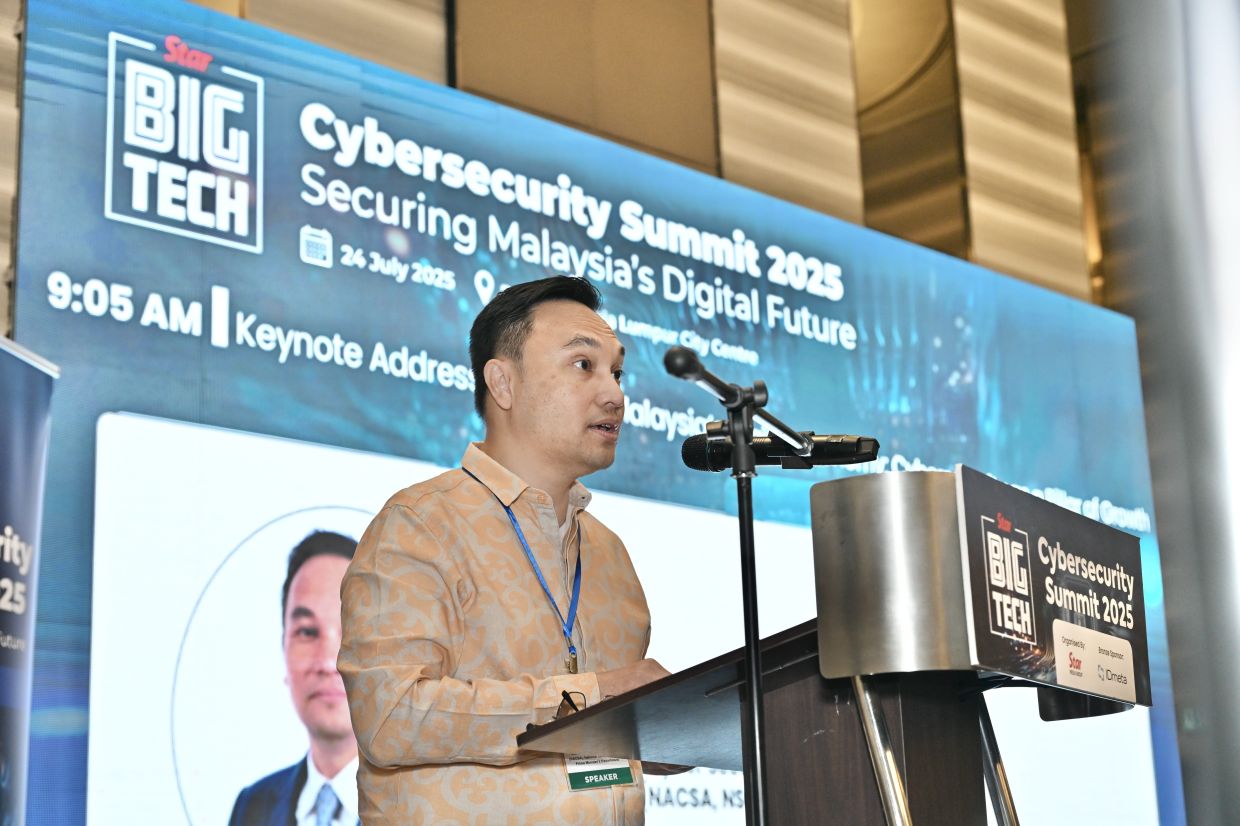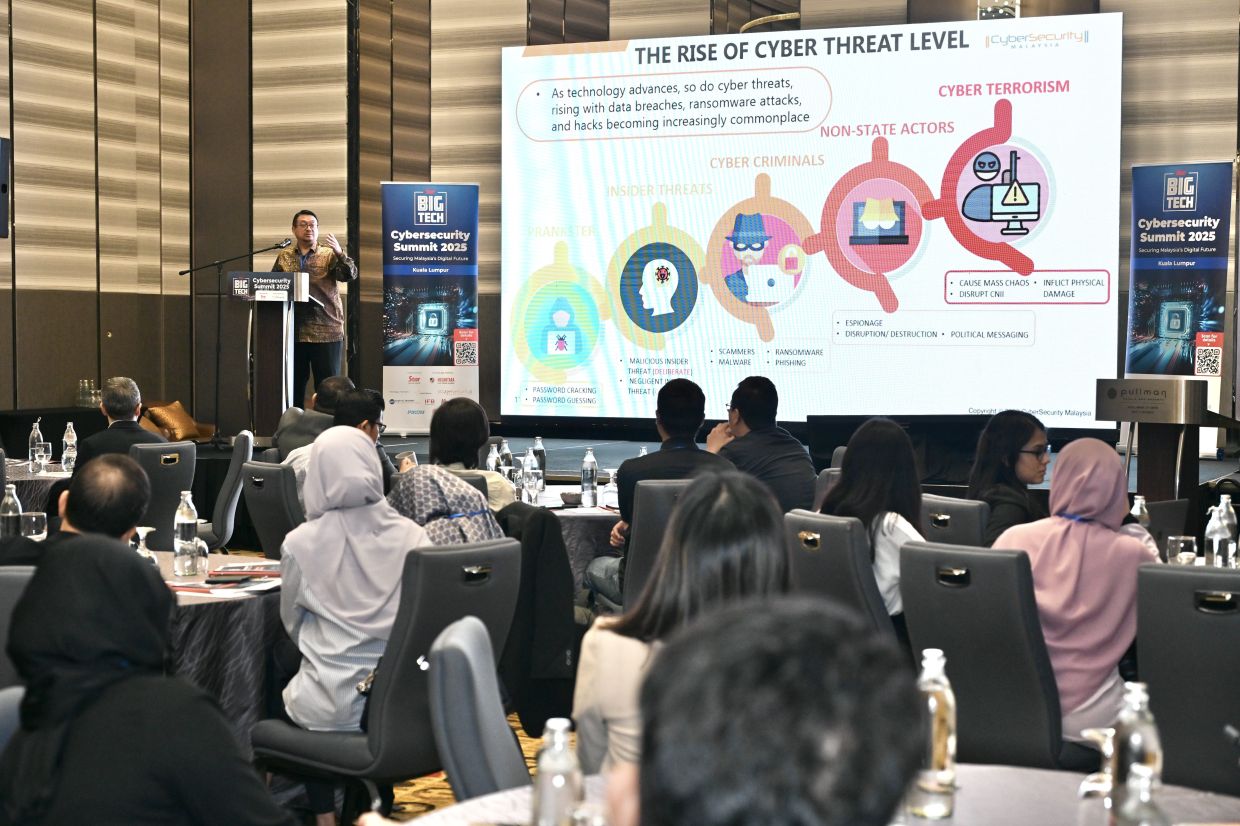Malaysia is experiencing a more sophisticated and aggressive wave of cyber threats, with 2,366 incidents reported in the first half of 2025, says the National Cyber Security Agency (Nacsa).
Nacsa's chief executive Ir Dr Megat Zuhairy Megat Tajuddin, said cyberattacks are no longer solely targeting critical infrastructure or institutions.
“These attacks increasingly target our most vulnerable population, including children, the elderly, and digitally inexperienced users,” he said during his keynote address at the Cybersecurity Summit 2025 on Thursday (July 24).
Organised by Star Media Group and supported by IDMeta as the bronze sponsor, the summit carried the theme “Securing Malaysia’s Digital Future.”
Megat said in 2024, Nacsa’s National Cyber Coordination and Command Centre (NC4) recorded 4,626 cybersecurity incidents, a 43% increase from the previous year.
“In the first half of 2025 alone, 2,366 incidents involving National Critical Information Infrastructure (NCII) were reported.
ALSO READ: Cybersecurity demands proactive identity verification to counter AI threats.
“These figures underscore the urgent need to strengthen national cyber hygiene and awareness,” Megat added.
He said cybersecurity is a critical national priority and should no longer be seen as merely a technical issue.
“Today's cyber threats don't simply target systems and software. They exploit something far more human, our trust, our habits, and the gaps between institutions,” Megat said.
CyberSecurity Malaysia's chief executive officer, Datuk Ts Dr Amirudin Abdul Wahab, joined the call for stronger safeguards, warning that digitalisation and emerging technologies, while transformative, also introduce new vulnerabilities.
“The more connected we are, the more exposed we become to the threat of cyber attacks,” he said.
Amirudin emphasised the need for organisations to go beyond prevention and focus on cyber resilience, which is the ability to respond, recover, and resume operations swiftly after an attack.
He also highlighted the importance of building a secure, resilient, and trusted cyber ecosystem through greater collaboration among regulators, industry players, academia, and international stakeholders.
Sarbnedhan Singh Sandhu of the Securities Commission Malaysia warned that compliance alone doesn’t ensure security.
He stressed the need for well-enforced frameworks aligned to business risks, noting that weak controls often lead to breaches.
Meanwhile, Securemetric Technology Sdn Bhd managing director Wo Swee Teck said generative artificial intelligence (AI) introduces serious risks.
He noted that effective risk mitigation depends on implementing strong cybersecurity measures, enforcing strict privacy safeguards, and ensuring continuous validation of AI models.
The one-day event gathered industry experts to address the country’s most pressing cybersecurity concerns, including the emerging risks of generative AI, vulnerabilities in operational technology (OT) systems, talent shortages, and the growing importance of digital trust in a hyperconnected world.
The summit also showcased actionable strategies, regulatory frameworks, and real-world case studies aimed at enhancing cyber resilience across all sectors.
This year’s edition featured more than 19 distinguished speakers and attracted over 80 participants, including C-level executives, IT security professionals, regulators, cybercrime investigators, and representatives from sectors such as telecommunications, finance, logistics, and technology startups.
Looking ahead, the CloudTech & DataCentre Conference 2.0, scheduled for Aug 6–7, will further explore strategies to position Malaysia as a regional hub for sustainable, high-tech data centres while advancing digital resilience.




No comments:
Post a Comment